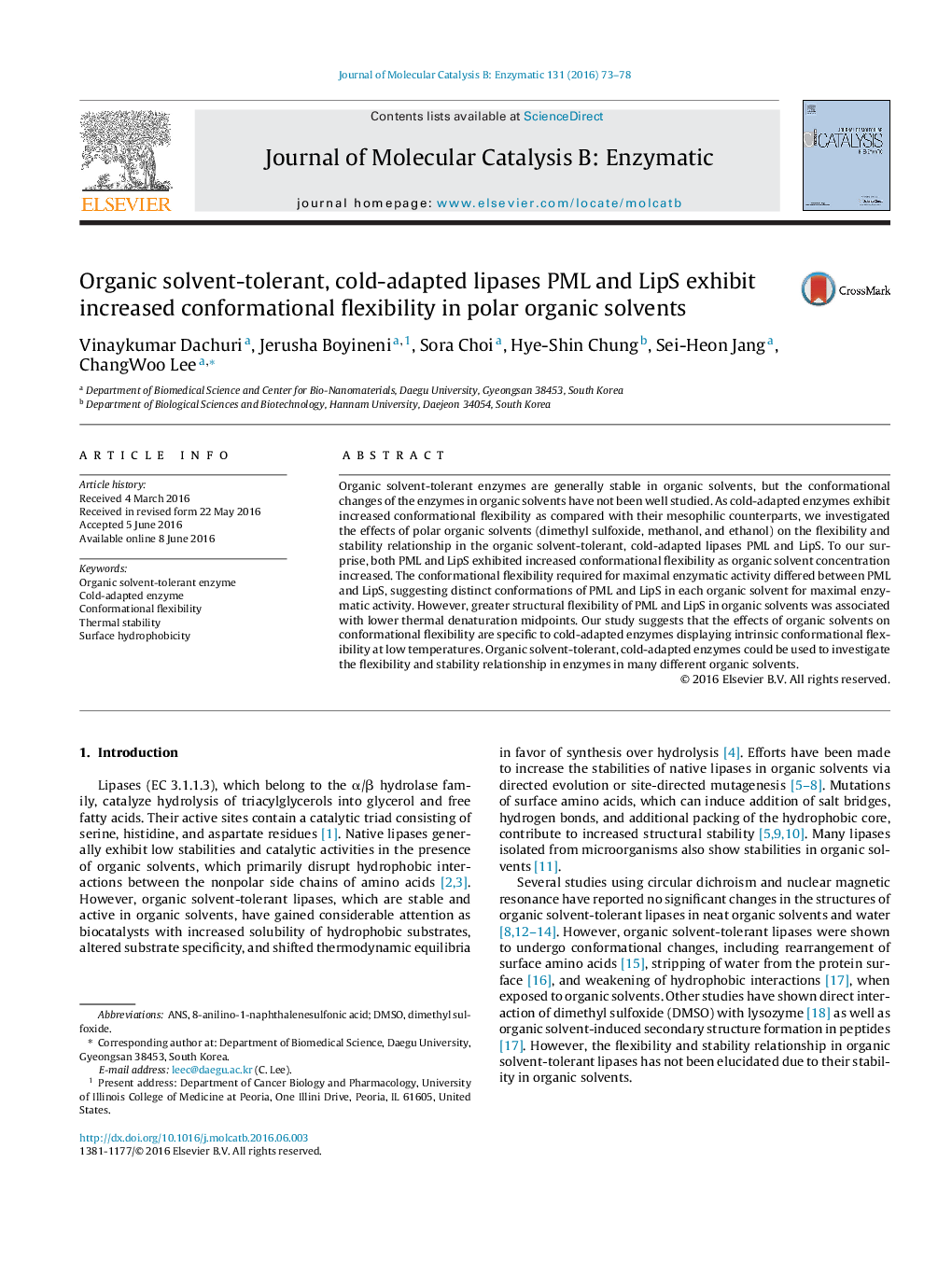| Article ID | Journal | Published Year | Pages | File Type |
|---|---|---|---|---|
| 69462 | Journal of Molecular Catalysis B: Enzymatic | 2016 | 6 Pages |
•PML and LipS are organic solvent-tolerant, cold-adapted lipases.•Polar organic solvents increase conformational flexibility in PML and LipS.•The enzymes exhibit reduced thermal stability in the presence of organic solvents.•Surface amino acids of PML and LipS were rearranged.
Organic solvent-tolerant enzymes are generally stable in organic solvents, but the conformational changes of the enzymes in organic solvents have not been well studied. As cold-adapted enzymes exhibit increased conformational flexibility as compared with their mesophilic counterparts, we investigated the effects of polar organic solvents (dimethyl sulfoxide, methanol, and ethanol) on the flexibility and stability relationship in the organic solvent-tolerant, cold-adapted lipases PML and LipS. To our surprise, both PML and LipS exhibited increased conformational flexibility as organic solvent concentration increased. The conformational flexibility required for maximal enzymatic activity differed between PML and LipS, suggesting distinct conformations of PML and LipS in each organic solvent for maximal enzymatic activity. However, greater structural flexibility of PML and LipS in organic solvents was associated with lower thermal denaturation midpoints. Our study suggests that the effects of organic solvents on conformational flexibility are specific to cold-adapted enzymes displaying intrinsic conformational flexibility at low temperatures. Organic solvent-tolerant, cold-adapted enzymes could be used to investigate the flexibility and stability relationship in enzymes in many different organic solvents.
Graphical abstractFigure optionsDownload full-size imageDownload as PowerPoint slide
